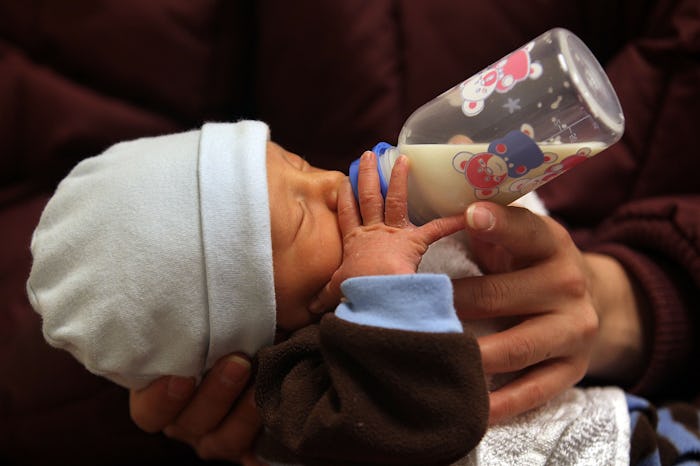News

Company Blocked From Importing Cambodian Breast Milk
Well, that didn't last long. A company that recently made headlines for exporting breast milk from Cambodia to the United States has been temporarily suspended from exporting the controversial product. The reason the company must stop importing breast milk from Cambodia? Cambodian officials said that the Utah-based company had not gotten approval from the Cambodian Ministry of Health.
The company in question, Ambrosia Labs, was the subject of a Broadly piece last week, which highlighted some of the potential benefits of and concerns about its mission. Ambrosia set up shop in Phnom Penh, Cambodia and began looking for lactating mothers, paying them to pump for American babies. The women pumping for Ambrosia had to have already breastfed their babies exclusively for six months, as recommended by the World Health Organization. Then, they had to pass a health check and disease screener that, according to what the company's co-founder Bronzson Woods told Broadly, was more stringent than regulations required by the Food and Drug Administration.
After that, those Cambodian mothers were deemed good to make money off their extra breast milk, while helping American mothers who, for whatever reason, cannot produce enough breast milk of their own for their children. It sounds like a great mission in a lot of ways, but it ran into some controversy.
Some had concerns that the company was taking advantage of these Cambodian women, paying them 64 cents per ounce of milk, while selling ten-packs of 5 ounce milk pouches in the United States for $200, though Broadly noted that at least some women with the company were making more than Cambodia's average daily income. Some women's advocates compared the new breast milk job to the Cambodian commercial surrogacy industry.
Whatever the case, for now, those interested in the company will have to wait and see whether it will be allowed to continue to do its thing. According to a report from Agence France-Press, Kun Nhem, the General Director of Customs and Excise, said, "We have asked [the company] to contact the Ministry of Health because the product comes from a human organ, so it needs permission from the Ministry of Health but they did not get it yet." Nhem went on to say that government officials would be meeting soon to determine a policy about exporting breast milk.
In the meantime, when Agence France-Press reporters went to Ambrosia's office in Cambodia, it was shuttered, and local women who had worked there had been told that the operation was suspended, but not given a reason why, according to New York Magazine's The Cut.
We'll have to wait and see whether or not Ambrosia Labs will be allowed to continue, and when. But for now, it's drudged up a lot of healthy debate over the merits and drawbacks of such a system.